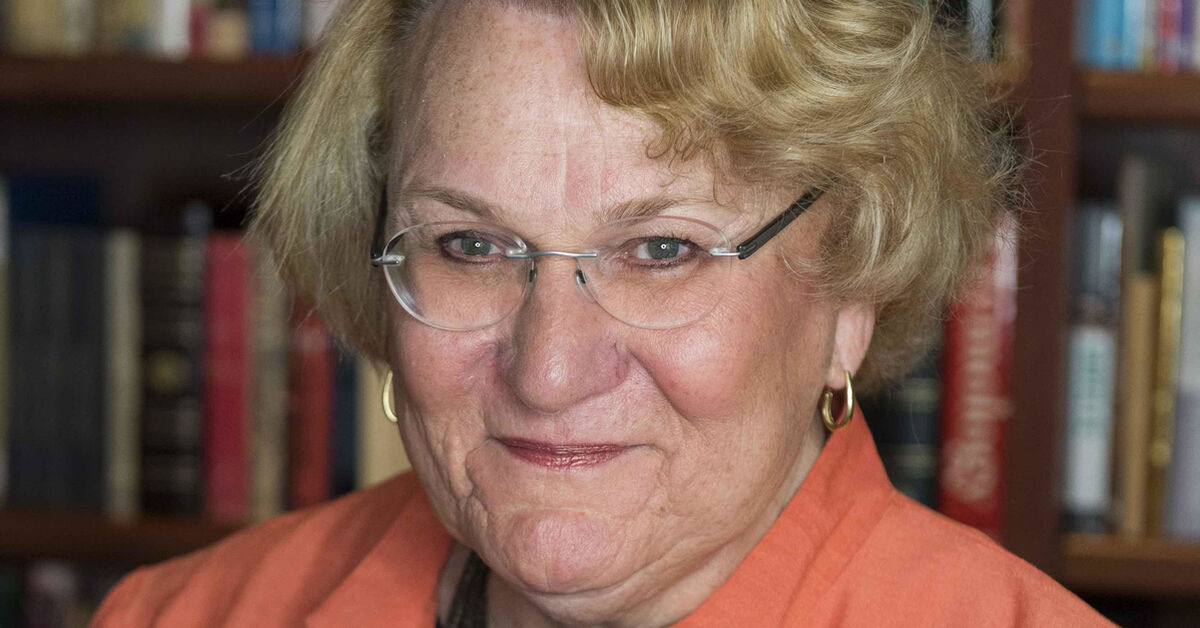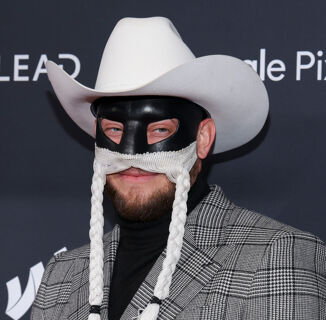Palm Springs made history twice during this year’s special elections.
On Nov. 7, the California city elected the state’s first transgender woman to a nonjudicial position when Lisa Middleton won a seat on the Palm Springs City Council. That victory made the gay-friendly town the only municipality in the country with an all-LGBTQ council.
But it’s not just that the Palm Springs City Council is fully queer and transgender. Every single letter of the acronym is represented: The same day that Middleton won 31 percent of the ballots cast in the electionthe top vote-getterPalm Springs elected Christy Gilbert Holstege, a bisexual civil litigation attorney. Geoff Kors and J.R. Roberts, who currently sit on the five-member board, are gay. And Middleton is married to another woman.
The Southern California town has long been working up to this: A majority of the town council has been LGBTQ for a decade.
“This is simply an evolution,” Middleton tells INTO. “As I’ve told people over and over again, our campaign was based on local issues, like managing our budget, making our streets safer, dealing with homelessness, and making Palm Springs a leader in renewable energy. Our job as an all-LGBTQ council is to do the work that any city council would do.”
“Potholes don’t care about your gender identity or sexuality,” she continues.
Middleton was one of eight transgender candidates elected in a groundbreaking year for LGBTQ politicians. More than 37 queer, trans, or intersex people won their respective races. Jenny Durkan will become Seattle’s first lesbian mayor, while New Jersey’s Betsy Driver will become just the second intersex person in the world to hold public office.
The 65-year-old says that the timing of the trans tipping point in politics wasn’t an accident. The community was “energized” by the number of anti-LGBTQ laws introduced in the past few years, including a bathroom bill in North Carolina which forced trans people to use bathrooms that do not correspond with their gender identity. Just this week, the Montana Senate approved a bill making it more difficult for trans people to change their birth certificates.
While Middleton doesn’t downplay the historic nature this year’s elections, she claims that LGBTQ candidates won for the simplest reason: They were the best people for the job.
“These campaigns had the broad-based support that it takes to win elections,” Middleton says in a phone interview. “It’s outstanding to see individuals come up with plans that are winning plans, not just running a symbolic campaign. We doubled the amount of transgender elected officials in one night.”
These candidates didn’t just break the glass ceiling. They shattered it.
Virginia delegate-elect Danica Roem defeated incumbent Bob Marshall, who had served in the state legislature, through tireless effort. Her campaign knocked on over 75,000 doors. Minnesota’s Andrea Jenkins, the first trans woman color elected to office in the U.S., won with 73 percent of the vote. Before her election to the Minneapolis City Council, she was a social worker and oral historian. Jenkins also worked as an advisor to two city councilmembers.
Middleton herself brings a distinguished record of public service, nonprofit work, and local advocacy. Her resumé is formidable.
The city councillor-elect served as an interim director for The LGBTQ Community Center of the Desert, located in Palm Springs. Middleton was the first transgender person to sit on its board of directors. She also worked in city government for 36 years.
During her three decades as an auditor for the State Compensation Insurance Fund, Middleton was instrumental in helping San Francisco pass a trans-inclusive healthcare policy, the first of its kind in the country. She worked with the healthcare board’s actuary to give him the information to make cost estimates for what this benefit would mean to the city and county.
Those meetings were crucial in the policy’s implementation: Because the plan was unprecedented, there was no hard data on the subject.
The city of San Francisco would find that insuring trans employees was extremely inexpensive. The health plan costs taxpayers less than a dollar for each person enrolled in the programbetween $0.77 and $0.96.
Most importantly, the trans-inclusive policywhich was implemented in 2001gave other municipalities and government agencies a precedent to follow. When the Obama administration began to study the impact of transgender healthcare on the military, there was finally data for them to pull from.
Middleton believes that voters in Palm Springs recognized those accomplishments, even across party lines.
After her victory, conservative constituents would come up and say: “I am a Republican. I have never voted for a Democrat in my life, but I voted for you.” Many of them had worked with Middleton on local planning committees and seen her in action, she says.
“They know I’m the kind of person who will listen to every side of every argument and find consensus solutions,” Middleton explains. “I’ve done it.”
Being an example of trans excellence in her community wasn’t something she was told was possible. Middleton came out in 1995, when she says some of the few depictions of transgender people were found in academic literature. Trans individuals were portrayed as “weak, emotional, and beauty-focused,” conforming to an extremely regressive view of stereotypical womanhood. These women were never portrayed, for instance, as “strong leaders.”
“None of that described my sense of what I wanted to be,” Middleton claims.
Blazing a trail hasn’t always been simple. When Middleton was coming of age during the 1960s and 70s, trans women were told that they would have to disappear in order to transition, cutting themselves off from old acquaintances.
But she didn’t go anywhere. Middleton would remain at her job for another 20 years. Coming out to colleagues and friends could often be difficult before celebrities like Laverne Cox helped educate the public about transgender people. The people in Middleton’s life who had the biggest problem adjusting, she claims, were those who had a “strong image” of her as the person that she “had been trying to be.”
Others, though, knew that there was something “different” about her but didn’t know what it was. Middleton says her coming out “completed the puzzle for them.”
More than two decades after transitioning, Middleton has the chance to show the world that transgender people can be everything she was once told they couldn’t. During the race, a woman came up to her at a campaign event with her seven-year-old daughter. The little girl stuck out her hand and said, “Hello, I’m Laurie. I’m like you. I’m transgender.”
Middleton hopes her win shows girls like Laurie that they can make history, too.
“I want to provide them with an example they can be proud of,” she says. “It’s an opportunity to say, ‘You can succeed. Others have gone before you.’”
Help make sure LGBTQ+ stories are being told...
We can't rely on mainstream media to tell our stories. That's why we don't lock our articles behind a paywall. Will you support our mission with a contribution today?
Cancel anytime · Proudly LGBTQ+ owned and operated
Read More in Impact
The Latest on INTO
Subscribe to get a twice-weekly dose of queer news, updates, and insights from the INTO team.
in Your Inbox














